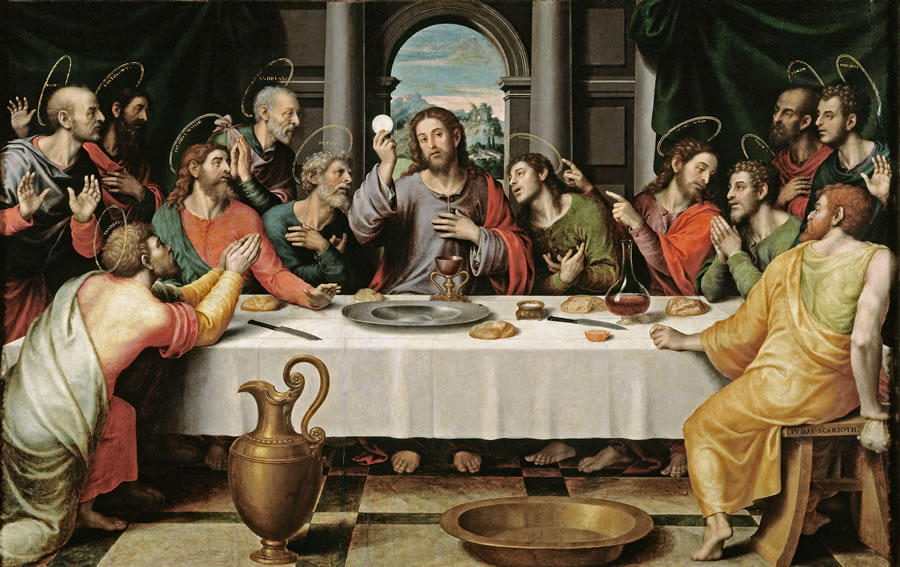
This Is My Blood Of The Covenant Which Will Be Shed For Many
06-02-2024Weekly ReflectionFr. Manasseh Iorchir, VCIt is safe to say that the story of the Christian Scripture which we call the Bible is the story of two Covenants: the first between God and the people of Israel, the second between God and the New Israel, the assembly of God’s children also known as Christ’s faithful. The Book of Genesis traces the origin of the world and man’s relationship with His Creator, a relationship that was mortally wounded by man’s disobedience and the gradual revelation of God’s plan to return man to the right relationship with His Maker. In Genesis 15, God made a covenant with Abraham and his descendants, this covenant was sealed with the blood of animals.
In the Book of Exodus, a er Israel had developed from a family to a nation, God renewed this same covenant with the descendants of Abraham and demonstrated that Israel was now fully under the terms of the covenant, Moses (their designated leader) took half of the blood from the animal sacrifices made for the sealing of the covenant and sprinkled it on the people saying “this is the blood of the covenant that the Lord has made with you in accordance with all these words of His,” while the other half he splashed on the altar. Then he read the Book of the Covenant to the people and they responded “all that the Lord has said, we will heed and do.” By this covenant, Israel was to submit to the reign of God at all times and in every generation while God was to be the God of the chosen people Israel. Israel was not able to be consistent in maintaining the exclusivity that this covenant required of her. Thus, there was a need for the establishment of a New Covenant that would involve all people and be sealed by the blood of the lamb that God Himself would provide.
The incarnation is essentially God’s Master Plan to provide the Lamb for the sacrifice that would seal the New Covenant, the Lamb that would establish the reign of God on earth, establish and demonstrate the law of love and be offered on the altar of the cross in order to restore us to righteousness. Consequently, Christ, by the merits of the blood He would shed for us on the cross, would become the “mediator of a New Covenant” (Heb 9:15). As the days of His passion and death on the cross drew near, Jesus decided to give His disciples an assurance of the permanent dura on of His presence among them. While they were at supper, He took bread and a er He had given thanks gave it to His disciples saying, “Take it, this is My body.” In a similar way, He gave the cup of wine to them saying, “This is My Blood of the Covenant, which will be shed for many.” This sacrament of love, the sacrament of the true body and blood of our Lord Jesus Christ, together with His soul and Divinity under the appearance of bread and wine, instituted for the constant nourishment of the souls of believers and as a sacramental reminder of the perpetual presence of Christ among us is what we celebrate this weekend.
As we celebrate this sacrament of thanksgiving and love, let us be reminded of the love of Christ for us that is expressed in this sacrament. While we thank God for this wonderful gift, each of us should ask if we believe Jesus as He offers Himself to us at every Mass. It is sad to know that a huge percentage of Christians neither believe in the real presence of Christ in the Eucharist nor do they accept that the sacrifice of the Mass is a reenactment of the sacrifice of Calvary. The Solemnity of the Body and Blood of Christ invites us to come home to the truth and develop a more intimate relationship with Jesus through the Eucharist, the sacramental perpetuation of Christ’s presence among us.
May we experience an internal revival in our belief in the real presence of Christ in the Eucharist, may we receive Him in grace more frequently and may we become who we eat in the Eucharist in our daily living, dying and rising.
Please be kind and may God bless you.
Fr. Manasseh
BACK TO LIST